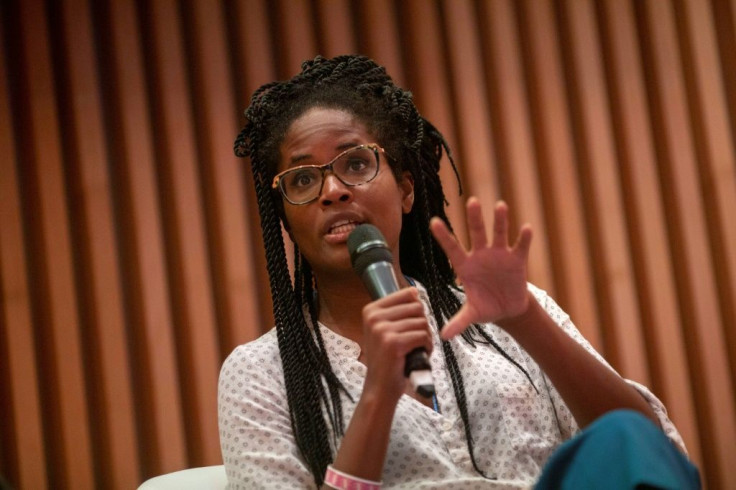Want To Be Anti-racist? In Brazil, There's A Guide For That

Want to avoid being racist? Black Brazilian philosopher Djamila Ribeiro has written a guide to explain how.
The existence of racial discrimination is widely acknowledged in the country of 210 million people, says the author of "A Little Anti-racist Handbook."
But few do anything to change those attitudes.
Ribeiro's 136-page guide, published last month, is an attempt to expand the debate about racism beyond left-wing academic and activist circles and get ordinary people to take action.
"What's in question is not a moral, individual position, but rather a structural problem," the prominent feminist tells AFP.
"The question is: what are you actively doing to combat racism?"
Inspired by the book "How to Be an Antiracist" by American historian Ibram X Kendi, and citing works by other black authors such as Angela Davis, Audre Lorde and Bell Hooks, Ribeiro offers a brief guide in 10 chapters on how to join the cause.
Being informed about racism is a good start, she says.
"In Brazil, there is the idea that slavery was less harsh here than elsewhere, which prevents us from understanding how the slave system still impacts the way society is organized," Ribeiro says in the book.
More than 130 years after slavery was abolished in Brazil, racial inequality still exists, official statistics show.
Despite making up more than half of the population, blacks only account for 24.4 percent of elected positions in Congress and 29.9 percent of leadership jobs.
They tend to earn salaries 73.9 percent lower than whites and have 2.7 times more chance of being murdered.
Supporting affirmative policies is fundamental for fixing these inequalities, says Ribeiro, pointing to public university quotas for black students introduced in 2012.
For access to quality education to be reflected in the labor market, it is also important to question and transform work environments, she says.
"What is the proportion of black and white people in your company?" she asks in the book.
"What is that ratio like for higher positions? Is there a diversity committee or a project for improving those numbers in the company?"
The race debate also needs to focus more on white privilege rather than just on the difficulties faced by the black population, says Ribeiro.
"It is fundamental to discuss from the perspective of those who benefit from the structural racism to identify their privileges and change the nature of them," she says.
"It's not about feeling guilty for being white: the question is to take responsibility
"Unlike guilt, which leads to inertia, responsibility leads to action."
Racism, Ribeiro argues, is "a system of oppression that denies rights, and not the simple act of one person."
Confronting it can be "paralysing," she concedes.
"But we must not be intimidated. Anti-racist practice is urgent and it occurs in the most ordinary, everyday attitudes."
© Copyright AFP {{Year}}. All rights reserved.




















